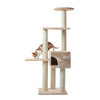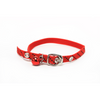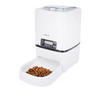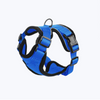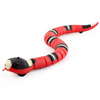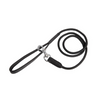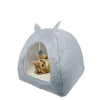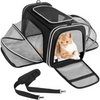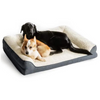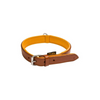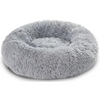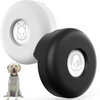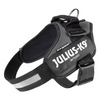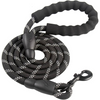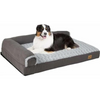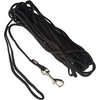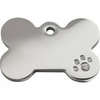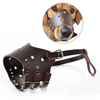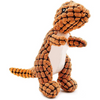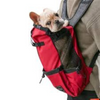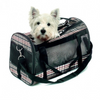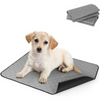Anxiety in dogs is a common problem that can affect their physical and mental well-being. Anxiety can manifest itself in many different ways, including destructive behaviors, aggression, excessive barking, trembling, and even health problems. It's important to recognize the signs of anxiety in your dog and put strategies in place to manage it.
In this article, we'll explore the causes of anxiety in dogs and provide you with practical tips to help your faithful companion overcome this condition.
Understanding the Causes of Anxiety in Dogs
Anxiety in dogs can be triggered by many situations and factors. It is essential to understand these causes to better manage them. Here are some of the common causes of anxiety in dogs:
-
Separation
Separation anxiety is one of the most common types of anxiety in dogs. Dogs are social animals that develop strong bonds with their owners. When left alone for long periods of time, they may become anxious and exhibit destructive behaviors.
-
Fears and phobias
Dogs can develop fears and phobias towards various stimuli such as thunderstorms, fireworks, strangers, other animals, etc. These fears can trigger intense anxiety and avoidance behaviors.
-
Changes in the environment
Changes in the dog's environment, such as moving to a new home, the arrival of a new family member, or the loss of a companion, can cause anxiety.
-
Lack of socialization
Dogs who were not properly socialized during their youth may develop social anxiety, becoming wary of other dogs or unfamiliar people.
-
Illness or pain
When a dog suffers from illness or chronic pain, it can cause anxiety. It is essential to consult a veterinarian to rule out any medical problems.
Recognizing the Signs of Anxiety in Dogs
Signs of anxiety in dogs can vary from individual to individual, but here are some common signs to look out for:
- Tremors or shakes : Your dog may shake or shake his body frequently, even in the absence of cold temperatures.
- Giving up food : Anxiety can cause a loss of appetite in some dogs.
- Destructive behaviors : Anxious dogs may nibble or destroy objects in the home.
- Excessive Barking : Frequent and excessive barking can be a sign of anxiety.
- Aggressive behavior : Some dogs become aggressive when anxious, showing signs of distrust of others.
- Excessive Licking : Anxiety can cause dogs to compulsively lick certain parts of their body.
- Avoidance behavior : Your dog may avoid situations, places, or people that trigger his anxiety.
Tips for Managing Anxiety in Dogs
Now that you have identified the signs of anxiety in your dog, here are some tips for managing it effectively:
-
Consult a veterinarian
The first step to managing your dog's anxiety is to consult a veterinarian. It is essential to rule out any underlying medical cause for the anxiety. The veterinarian may recommend tests to make sure your dog is healthy.
-
Canine behaviorist
If your dog's anxiety is related to behaviors, it may be helpful to consult a certified canine behaviorist. These professionals can assess your dog's behavior and develop an anxiety management plan.
-
Desensitization and counterconditioning training
Desensitization and counterconditioning are training techniques that can help dogs overcome their fears and phobias. This involves gradually exposing the dog to the stimulus that triggers his anxiety while associating this exposure with positive rewards.
-
Alternative therapies
Some alternative therapies, such as acupuncture, physical therapy, and canine meditation, can help reduce anxiety in dogs. Consult your veterinarian to discuss these options.
-
Exercise and mental stimulation
Make sure your dog gets enough physical exercise and mental stimulation. Regular walks, interactive games, and chew toys can help relieve stress and anxiety.
-
Create a safe environment
Provide your dog with a safe space where he can retreat when feeling anxious. A cage or quiet place with their favorite blanket can be beneficial.
-
Avoid punishing
It is important not to punish your dog for his anxious behavior. Punishment can make anxiety worse. Instead, look for ways to comfort and reassure him.
-
Drugs
In some cases, a veterinarian may recommend medication to help manage your dog's anxiety. These medications are usually used in conjunction with other methods of managing anxiety.
Anxiety in dogs: solutions
Anxiety in dogs is a common but manageable problem. Understanding the causes of anxiety and recognizing the signs in your dog is essential to implementing effective anxiety management strategies. Consulting a veterinarian is the first important step in ruling out any underlying medical causes and obtaining professional advice.





